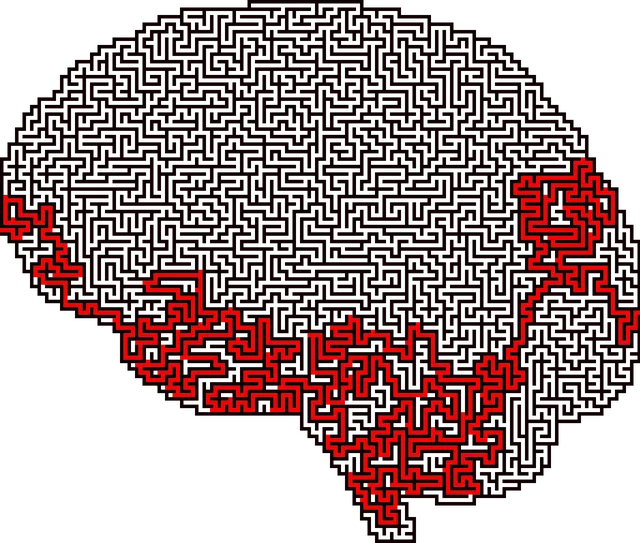The Kaiser Permanente Mental Health Access Center in Lakewood combats stigma through education, open discussions, and accessible resources. They empower individuals with self-awareness exercises, mindfulness meditation, and proactive self-care initiatives. By fostering community and normalizing conversations about mental wellness, the center promotes timely support and long-term well-being for diverse populations, setting an inclusive example for the region.
Stigma surrounding mental illness remains a significant barrier to effective care, especially in communities like Lakewood. This article explores targeted efforts to reduce this stigma through various initiatives at the Kaiser Permanente Mental Health Access Center Lakewood. We delve into understanding the impact of stigma, community education programs that dispel misconceptions, and accessible resource navigation. Additionally, we highlight peer support groups and policy advocacy pushing for improved mental health care availability in the community.
- Understanding Stigma: Barriers to Seeking Help at Kaiser Permanente Mental Health Access Center Lakewood
- Educating Communities: Breaking Down Misconceptions About Mental Illness in Lakewood
- Accessing Resources: Navigating Support Services for Mental Well-being at the Access Center
- Peer Support and Advocacy: Empowering Individuals Affected by Mental Illness in Lakewood
- Policy Changes: Advocacy for Improved Mental Health Care Availability in the Community
Understanding Stigma: Barriers to Seeking Help at Kaiser Permanente Mental Health Access Center Lakewood

At Kaiser Permanente Mental Health Access Center Lakewood, understanding stigma is a critical step in breaking down barriers that prevent individuals from seeking help for their mental health issues. Stigma often manifests as negative attitudes and beliefs about mental illness, leading to feelings of shame and fear. Many people struggling with mental health conditions avoid treatment due to concerns about judgment or discrimination. This hesitation can significantly impede their journey towards recovery.
The center recognizes that fostering Mental Health Awareness is essential in reducing stigma. Through educational initiatives, they promote Self-Awareness Exercises and Mindfulness Meditation as tools for individuals to better understand their own mental health experiences. By normalizing conversations around mental wellness, the center aims to create a supportive environment where seeking help is seen as a sign of strength rather than vulnerability.
Educating Communities: Breaking Down Misconceptions About Mental Illness in Lakewood

In Lakewood, efforts to reduce mental illness stigma have taken a proactive approach by educating communities and breaking down misconceptions prevalent among residents. The Kaiser Permanente Mental Health Access Center plays a pivotal role in this initiative, providing a platform for open discussions and accessible resources that empower individuals to understand and support those grappling with mental health challenges. Through workshops, seminars, and community gatherings, the center facilitates conversations centered around mental health awareness, fostering an environment where resilience building and inner strength development are nurtured.
By engaging various stakeholders—from local leaders to concerned citizens—the Kaiser Permanente Mental Health Access Center ensures that accurate information about mental illness is disseminated widely. This proactive strategy not only reduces stigma but also encourages early intervention and timely support for individuals in need, ultimately enhancing the overall well-being of the Lakewood community.
Accessing Resources: Navigating Support Services for Mental Well-being at the Access Center

Navigating mental health support services can be challenging, but Kaiser Permanente’s Mental Health Access Center in Lakewood offers a centralized hub for individuals seeking care. This center serves as a one-stop shop, providing easy access to various resources tailored to diverse needs. The team at the access center is dedicated to offering comprehensive guidance, ensuring patients find the right support and services for their mental wellness journeys. They facilitate connections with specialized therapists, psychiatrists, and community resources, catering to different cultural backgrounds and preferences.
With a focus on cultural sensitivity in mental healthcare practice, the center offers personalized care plans. They also promote self-care initiatives like mental wellness journaling exercises, which help individuals process their emotions and track progress. Additionally, they support the development of mental wellness coaching programs, empowering people to take an active role in managing their mental health. This holistic approach ensures patients receive not only treatment but also the tools to maintain long-term mental well-being.
Peer Support and Advocacy: Empowering Individuals Affected by Mental Illness in Lakewood

In Lakewood, peer support and advocacy play a pivotal role in reducing the stigma associated with mental illness. Programs like those offered by the Kaiser Permanente Mental Health Access Center aim to empower individuals affected by mental health conditions. By fostering connections among peers with shared experiences, these initiatives create safe spaces for open dialogue, encouraging honest conversations about mental wellness.
Through peer support, individuals learn valuable skills such as mindfulness meditation, resilience building, and conflict resolution techniques. These tools not only help them manage their own mental health but also enable them to advocate effectively for themselves and others. By breaking down barriers and promoting understanding, these efforts contribute significantly to creating a more inclusive community where those with mental illness feel supported and valued.
Policy Changes: Advocacy for Improved Mental Health Care Availability in the Community

Efforts to reduce mental illness stigma often involve advocating for policy changes that improve access to quality mental health care within communities. One notable example is the work done by organizations like Kaiser Permanente Mental Health Access Centers, with a specific focus on areas such as Lakewood. These centers serve as hubs for comprehensive mental health services, ensuring that individuals in diverse communities can receive timely and effective treatment.
Through policy analysis and advocacy, mental health advocates push for increased funding and resources to support community-based programs. This includes the implementation of Community Outreach Programs designed to educate the public about mental health issues, break down barriers, and foster a culture of understanding and acceptance. Such initiatives aim to provide Anxiety Relief and improve overall well-being by normalizing conversations around mental health and reducing the social isolation often experienced by those dealing with mental illness.
The journey towards reducing mental illness stigma in Lakewood has multiple facets, from increasing community education and access to resources like the Kaiser Permanente Mental Health Access Center Lakewood, to empowering peer support groups and advocating for policy changes. These efforts collectively create a more inclusive environment where individuals can openly seek help without fear of judgment. By breaking down misconceptions and barriers, the community fosters mental well-being and ensures that those affected by mental illness have the support they need.






